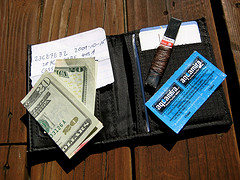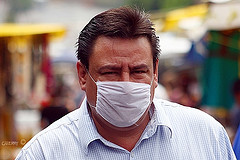 While many travelers have learned the value of travel insurance, for some it’s still not on the radar. Until something happens, that is. At that point, travelers begin scrambling to find coverage for their upcoming trips.
While many travelers have learned the value of travel insurance, for some it’s still not on the radar. Until something happens, that is. At that point, travelers begin scrambling to find coverage for their upcoming trips.
Unfortunately, it’s often too late for them to get adequate coverage or protect the financial investment they’ve already made.
We always recommend that travelers purchase their travel insurance very soon after making their initial trip payment. In fact, buying your travel insurance as soon as possible is essential to avoiding some of the common travel insurance ‘loopholes’ so many travelers complain about.
Here are 5 reasons travelers should not wait to purchase their travel insurance.
1. You can’t predict the future
All insurance plans are designed to protect against the unknown: trees that fall on houses, snowplows that crash into parked cars, hurricanes that destroy beach resorts. It’s the unknown things that can ruin your vacation and even leave you in deep financial trouble. Travel insurance is designed to protect you against all that.
Once something becomes a known event – like when a hurricane is named, or a medical condition is diagnosed and treated – that event is no longer something travel insurance can protect you against. It’s already happened. Purchasing your travel insurance plan early protects you against those events no traveler could predict.
2. You want access to certain coverage
Some travel insurance coverage requires that you purchase the plan soon after making your first trip payment. Again, this goes back to the first rule of insurance: it only covers unknown events.
Some of the coverage that requires early purchase include:
- ‘Cancel for any reason’ coverage
- ‘Cancel for work reasons’ coverage
- Pre-existing medical condition coverage
- Financial default coverage
- Hurricane coverage
- Work conflict coverage
For many travelers, these are essential coverage for their trip and advanced purchase is required, so this is a big reason to purchase your travel insurance early.
3. You know your state of health right now
If you have a pre-existing medical condition, and even if you don’t, you know your state of health right now and you can plan to have the right travel medical coverage in place if you need it on your trip.
Even if everyone in your party is completely healthy, without adequate travel medical coverage, you could be paying serious money for medical care if someone gets sick or injured on the trip. Just see these recent traveler stories if you need convincing:
- Injured Snowboarder Needs Close to $80,000 for Medical Evacuation
- American Couple Trapped in Costa Rica after Tragic ATV Accident
In addition, if you do have a pre-existing medical condition – that is, any medical condition that has been diagnosed or treated prior to your trip – you’ll want to be sure that your travel insurance plan includes coverage for pre-existing conditions.
4. You can make changes if necessary
Not only do travel insurance plans come with a free review period, typically 10-14 days long, you can make changes to your plan after you make your initial travel insurance purchase. Add a wildlife tour to your travel plans? Add that to your total trip costs and cover it.
If you end up with lower trip costs, you can make changes to the coverage and get a partial refund as well. After you’ve reviewed your plan documents, you can even cancel the travel insurance plan if it doesn’t suit your needs, but be sure to replace it soon with a plan that does!
5. You want to be able to cancel if necessary
Travelers have to cancel their trips for all kinds of reasons they never expected when they made their reservations. Fortunately for you, there are two primary options for trip cancellation:
- Standard trip cancellation – which reimburses up to 100% of your pre-paid, non-refundable travel costs when an unforeseen event causes you to cancel your trip
- ‘Cancel for any reason’ – which reimburses between 50% and 100% of your pre-paid, non-refundable travel costs when you have to cancel your trip for any reason at all
‘Cancel for any reason’ was designed to give travelers the option to cancel for those reasons not covered by standard trip cancellation coverage, which has a list of exclusions. For example, if a traveler reserved a mountain getaway in Colorado this summer but now wants to cancel due to the devastating wildfires, they won’t likely have coverage with standard trip cancellation.
There are a few travel insurance providers that allow you to make a last-minute travel insurance purchase. You’ll find them by putting your basic trip details into our travel insurance comparison tool. It’s important to note, however, that you must carefully review the plans that result from the comparison to be sure they will deliver the coverage you need before you purchase. After all, you may not have time to make changes to your plan before your trip.







